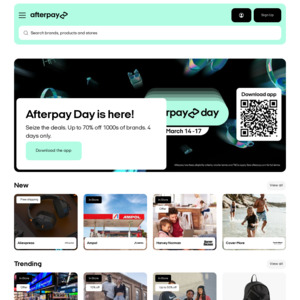I recently thought of checking out after pay - the way it works is if I use afterpay for a $100 item, I need to pay them 4 equal payments of $25 every week. If I have a credit card, I can still keep that $100 in a savings account, earn a few cents before the billing cycle and pay my credit card the same amount of money and even earn some points.
What is the advantage of AfterPay ?
If a person had the same amount of dedication towards payments, wouldn't just a credit card suffice ?
I understand afterpay as an option for people who don't have a credit card - out of choice. Other than this what appeals to people about after pay ?

@Diji: Not at all, I know they would sell their sister if they could make $5, but they also don't want a heap of bad debt.